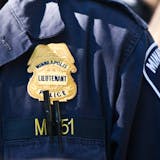A federal judge denied a request to halt the clearing of remaining encampments in Minneapolis, stating there was no proof that doing so would cause "irreparable harm" to the homeless.
The lawsuit, filed last week on behalf of seven homeless people against Hennepin County, the city of Minneapolis and the Minneapolis Park and Recreation Board, sought to stop the evictions of any people still sleeping in city parks or property.
Lawyers for the American Civil Liberties Union of Minnesota (ACLU) and Mid-Minnesota Legal Aid argued that the clearings violated the constitutional rights of the homeless, claiming they were given little to no notice and no other places to go.
In an order filed Thursday, U.S. District Judge Wilhelmina Wright rejected their request.
According to statements provided by the city and county, Wright wrote in her order, officials only clear encampments if there is shelter space available and the camps pose health and safety risks to both the homeless and the public. The city and county both said shelter beds have been available throughout the year.
Though there are beds for families and single women, there has been less space available for single men beginning in September, David Hewitt, director of Hennepin County's Office to End Homelessness, said in a court record. Still, to stop the disbandment of encampments, the harm needs to be "certain and concrete," Wright stated.
Five of the plaintiffs in the lawsuit are no longer living in encampments, Wright wrote. Though that doesn't mean they could not end up in one in the future, any potential harm would be "speculative" and not grounds to approve their request.
The coronavirus pandemic has both increased homelessness and made it harder to address the problem, Wright said in her opinion.


